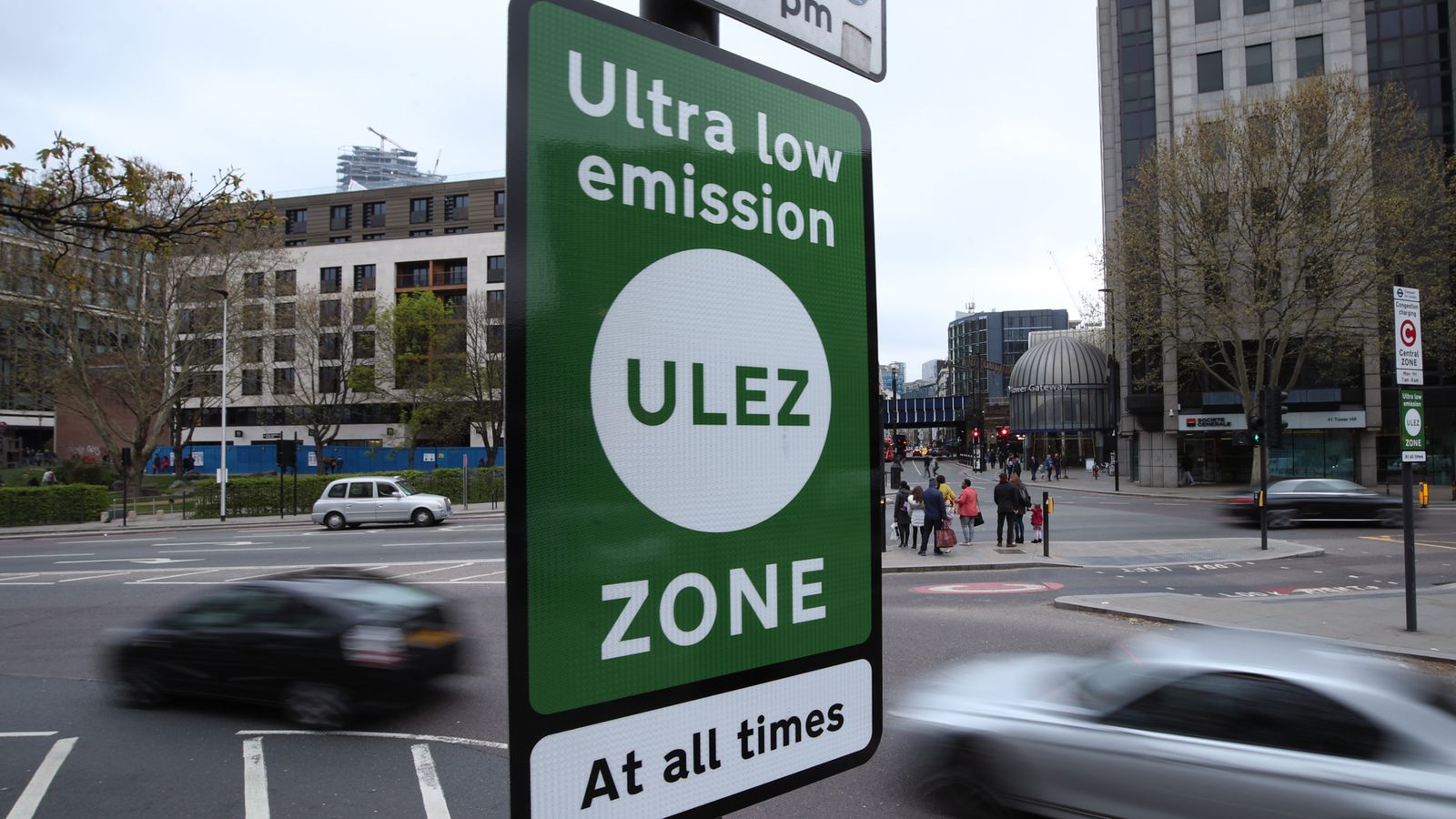The Ultra Low Emission Zone (ULEZ) policy in London – described as “the world’s most stringent” – has resulted in only small improvements in air quality, new research has found.
The ULEZ was introduced by Mayor of London Sadiq Khan in 2019 and expanded in October this year, charging drivers £12.50 a day if they travelled in vehicles which didn’t meet particular emission standards – but its effectiveness is now being called into question.
Similar policies have been introduced in other British cities, including Bath, Birmingham and Glasgow, with several others having plans to implement clear air zones, and the new research could impact how those policies are developed.
A scientific study into the impact of London’s ULEZ has found it to be marginal according to scientists at Imperial College London (ICL), but other policies mean the air quality in the city has been improving considerably all the same.
Between 2016 and 2020, the number of people in London living in areas with illegally high levels of nitrogen dioxide fell by 94% as policies such as the Low Emission Zone, Low Emission Bus Zones, and bus and taxi electrification took effect.
Air pollution causes thousands of deaths a year in the UK due to conditions such as stroke, heart disease, lung cancer and both acute and chronic respiratory diseases, with an estimated 40,000 occurring in 2019 – 4,000 of which were in Greater London.
Compared to the overall decrease in air pollution in the capital, the ULEZ only achieved very small improvements in air quality according to the Imperial College London study.
COVID deaths in England’s first wave were 70% higher in areas with worst air pollution, study finds
Charges for drivers in Birmingham’s Clean Air Zone delayed by two weeks in ‘soft launch’
‘Shockingly bad’: Businesses condemn timing of introduction of Birmingham clean air zone
The researchers found that it resulted in an average reduction of less than 3% for nitrogen dioxide concentrations, and insignificant effects on ozone and particulate matter (PM2.5) concentrations.
The biggest pollution changes all took place before the ULEZ came into effect.
Dr Marc Stettler from ICL said: “Our research suggests that a ULEZ on its own is not an effective strategy to improve air quality.
“The case of London shows us that it works best when combined with a broader set of policies that reduce emissions across sectors like bus and taxi retrofitting, support for active and public transport, and other levies on polluting vehicles.”
He continued: “Cities considering air pollution policies should not expect ULEZs alone to fix the issue as they contribute only marginally to cleaner air. This is especially the case for pollutants that might originate elsewhere and be blown by winds into the city, such as particulate matter and ozone.”






















